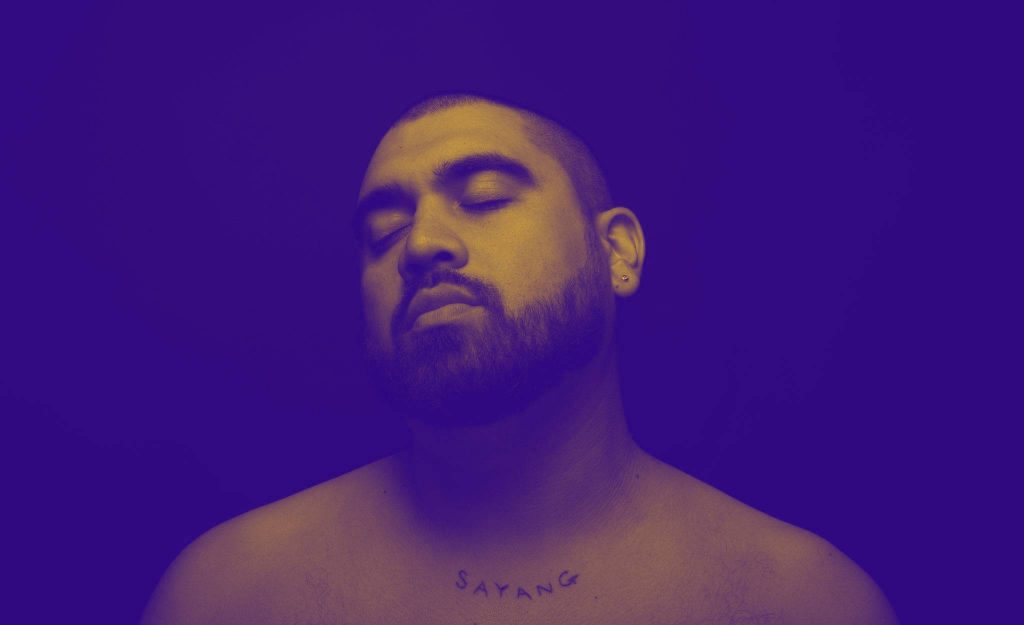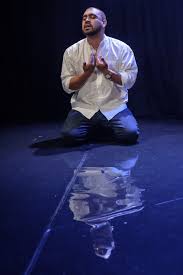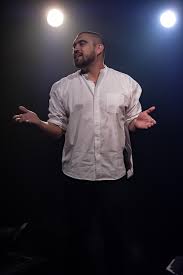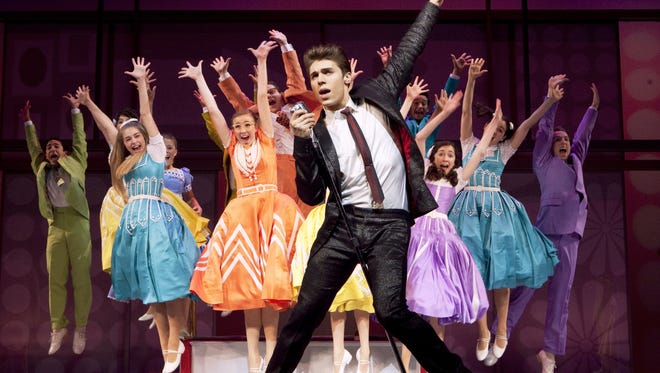
‘Since Ali Died’ // Brisbane Festival
‘Since Ali Died’ was captivating.
“Me: We” – Muhammed Ali. This is the message that Omar Musa leaves lingering in the mind of his audiences as they exit his darkened theatre. It is a line that transcends the English language, for its simplicity, but also for the way that it resonates within every human in a slightly different way. Last night, produced by Griffin Theatre Company as part of the Brisbane Festival, Musa shared his story. His ‘me’ became ‘we’ as he invited us into his world and his experience.
A black stage, empty but for a single microphone: this is the space into which Musa enters. Inspired by the life and passing of Muhammed Ali, Musa shares snapshots of his childhood growing up in Queanbeyan, rural NSW, as a Muslim and a Malaysian-Australian. The work is a collage that goes between anecdotes about his life – family, love lost, friends gone astray, and hero’s passed – as well as dreamscape-like sequences in which he converses with Muhammed Ali. An amalgamation of poetry, song, rap and audience interaction, Musa tells a politically charged story about racism and inequality. Asking questions about self-acceptance and culture.
As both writer and performer, Musa owns his stage. In a casual white button-up and black jeans, his presence is electric. There is something in his voice that entrances, and he delivers his words with an integrity and animation that is totally captivating. Through his writing, delivery and subtle hand gestures, Musa transports the audience to rural NSW, as he describes the landscape, his family home, people and situations.
Incorporating moments in the narrative where he breaks the fourth wall, Musa reminds the audience that his words are not fiction, but a lived experience. One such moment was when he spoke of his mother. Through poetry he recalls their morning car trips to school, as she encouraged him to question everything, and then, at the conclusion, with tears running down his face, calls upon the audience to ‘give it up for his mum.’
Directed by Anthea Williams, ‘Since Ali Died’ is focussed and poignant. A work that comes so much from the performer’s heart requires a collaborative director who is sensitive to the personal nature of the work. In this, Williams excelled. The blocking was simple, but effective, keeping the audience engaged, and leading them through the different elements of the story. The use of hand gestures to create a sense of space and animation was poetic in itself and complemented Musa’s words. Williams allowed Musa’s presence and natural storytelling ability to shine.
The lighting design, again, was simple but highlighted Musa’s storytelling. As the play morphed from song to poem to conversation, the lighting followed suit. Warm lighting accompanied stories of his father, while aqua blue became the colour for Muhammed Ali, and outbreaks into rap were lit by a succession of colours, changing to the pulse of the music.
Musa’s original music is embedded in the work. Poems delivered live as rap, accompanied by a recorded track, emphasise Musa’s story and keep the audience closely engaged throughout. Incorporating harmonies and driving beats, this form provided high energy and variation that was punchy and exciting.
Omar Musa bares his soul on stage in ‘Since Ali Died.’ Recollections of his life in rural NSW, alongside the resounding and inspiring influence of Muhammed Ali, create a collage of Musa’s life that will leave audiences considering his story and his messages long after they leave the theatre. Such is the nature of this show, as in life, that every person will walk away having realised or learned something completely unique.
‘Since Ali Died’ shows until Saturday, 14 September 2019, at The Loft Theatre – Theatre Republic, as part of Brisbane Festival. Tickets can be purchased at Brisbane Festival – Since Ali Died.








